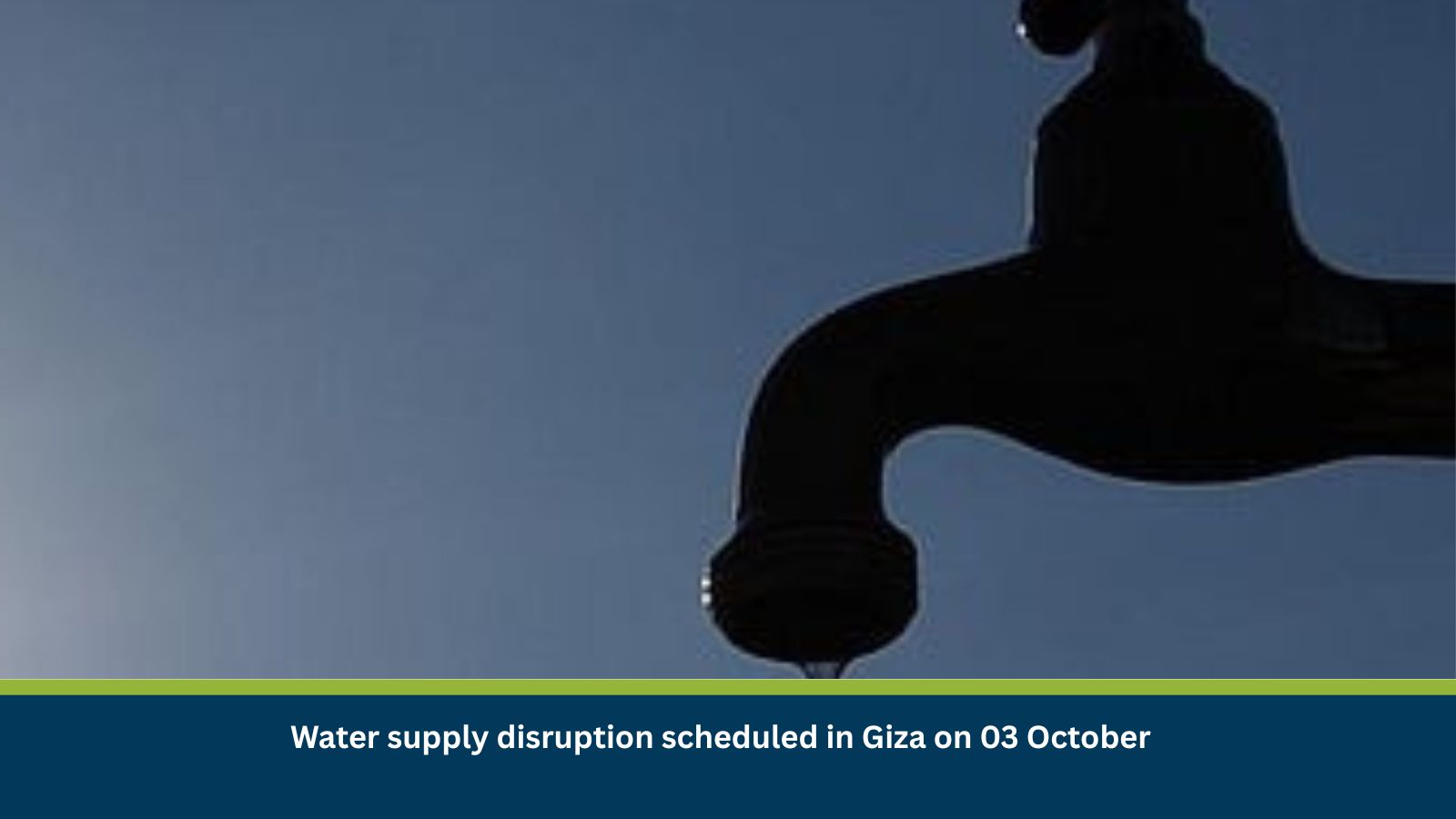What is Risk Analysis in the Context of Critical Infrastructure Events
Critical infrastructure risk analysis examines how disruptions to essential utilities, like water, electricity, or transport, impact communities, businesses, and public safety. In Egypt, scheduled water supply interruptions are relatively common during infrastructure maintenance. While typically short in duration, such outages affect urban resilience, operational continuity for businesses, and public health in dense districts like Giza. Monitoring these events is essential to anticipate operational disruption, prepare mitigation strategies, and ensure continuity of critical services.
Executive Summary
- Date of Incident: 03 October 2025
- Location: Marioute, Faisal, Giza Pyramid, Giza, Egypt
- Risk Category: Critical Infrastructure
- Severity Score: 2/5
- Confidence Level: 90%
A scheduled water outage is set for 03 October in parts of Giza, expected to last six hours. While not life-threatening, the event will temporarily affect households and water-dependent businesses. Past patterns suggest such outages rarely extend beyond 10–12 hours, though unforeseen complications can delay recovery. The disruption is manageable but requires preparedness from businesses and residents.
Current Updates
Authorities have pre-announced the outage, signalling routine maintenance by the Egyptian Holding Company for Water and Wastewater. While the exact neighborhoods have not been confirmed, outages historically affect large residential and commercial areas including Haram, Faisal, and occasionally Dokki and Mohandessin. The predictability of the event ensures a high confidence of occurrence with limited safety risk.
Known Hotspots and Sensitive Areas
- High impact: Dense districts such as Haram and Faisal with large residential populations and hospitality businesses.
- Medium impact: Commercial hubs like Dokki and Mohandessin, where restaurants, hotels, and offices rely on steady water supply.
- Low impact: Outlying residential zones less dependent on high daily water demand.
Impact on Transportation and Services
No direct transport disruption is expected. However, businesses such as hotels, restaurants, and hospitals may face temporary service constraints. Urban households will experience inconvenience in hygiene and sanitation. Customer-facing operations may also slow due to reduced on-site staff availability and client traffic.
Recommended Actions
- Immediate: Fill storage tanks and stock bottled water supplies before outage begins.
- Operational: Temporarily halt or reschedule non-critical water-intensive tasks such as cleaning or certain manufacturing functions.
- Safety & Welfare: Provide hand sanitizers, temporary restrooms if feasible, and communicate water-use guidance to staff.
- Stakeholder Communication: Inform clients and suppliers of temporary service disruptions and mitigation steps to maintain transparency and trust.
- Support Agencies: Egyptian Holding Company for Water and Wastewater (Hotline 125) remains the primary point of contact.
Multidimensional Impact
The outage will inconvenience households and businesses, disrupt routine services in hospitality and food industries, and increase demand for bottled water and private water delivery. Though temporary, sanitation risks may rise if the outage extends beyond six hours. Public frustration could surface if the outage is prolonged or poorly communicated, though such events rarely escalate into unrest. Wider socio-economic impacts are minimal, but microeconomic disruption in commercial districts can add to operational costs.
Emergency Contacts
- Police: 122
- Fire Department: 180
- Ambulance: 123
- National Water Hotline (HCWW): 125
- Giza Governorate Call Center: Official Facebook Page / Website
Final Thoughts
The scheduled outage represents a low-severity, high-certainty risk. While no major safety or infrastructure threats are anticipated, operational inconvenience and public dissatisfaction may arise if the disruption is extended. Businesses should pre-position water reserves, adjust schedules, and maintain proactive communication to minimize impact. Strategic takeaway: even planned utility disruptions underscore the importance of preparedness, contingency planning, and resilient urban infrastructure management. Stay ahead of operational risks with real-time alerts, scenario modeling, and expert advisories with datasurfr’s Predict. Start your 14-day free trial of Datasurfr’s Risk Intelligence Platform today.






